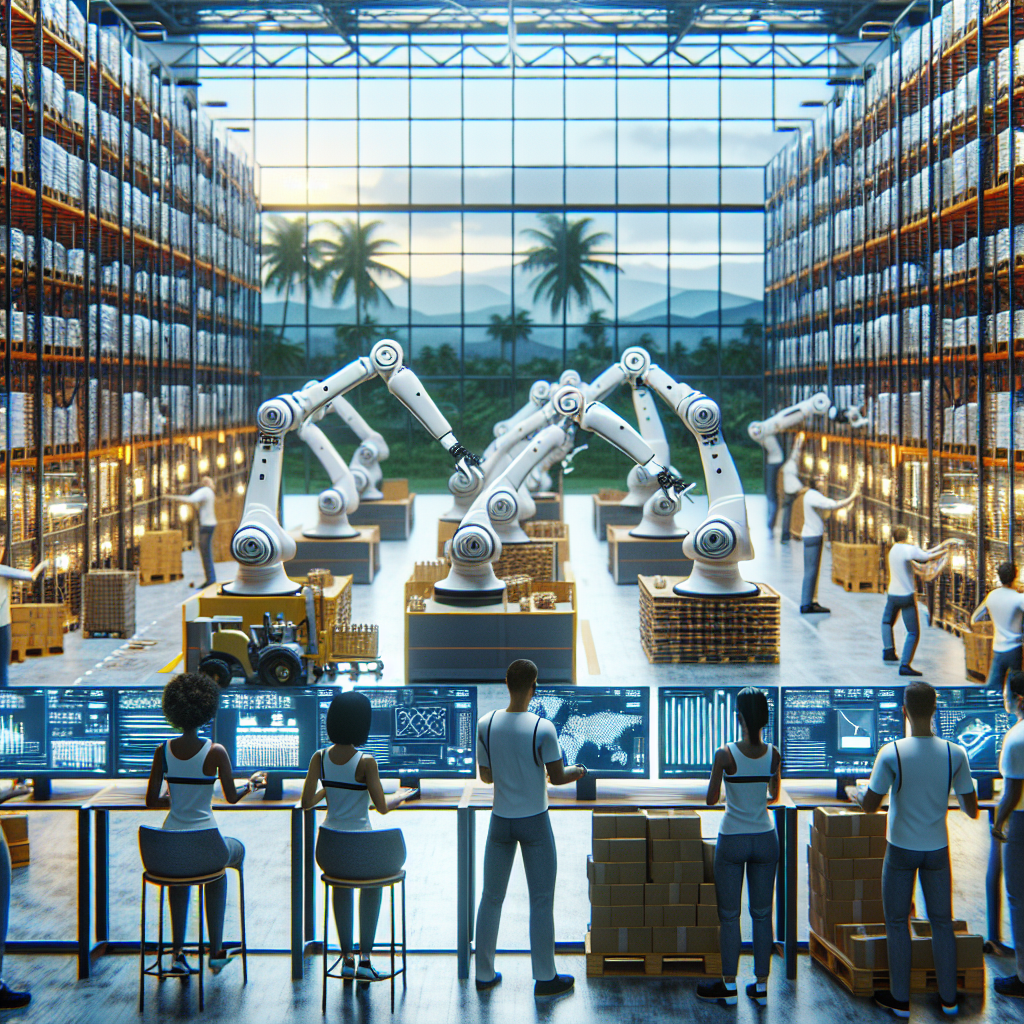Table of Contents
In the vibrant and fast-growing world of Brazilian e-commerce, a quiet but powerful revolution is underway. Artificial intelligence (AI) is reshaping how online retailers operate, innovate, and serve the needs of an increasingly digital-savvy consumer base. As Brazil’s e-commerce market continues its upward trajectory, expected to reach $160 billion by 2025 according to a report by Euromonitor International, AI is poised to be the catalyst for transformative changes that will redefine the industry.
The AI-Powered Personalization Imperative
At the heart of Brazil’s AI-driven e-commerce revolution lies the quest for hyper-personalization. In a market where customer expectations are sky-high and brand loyalty is hard-won, the ability to deliver tailored, context-aware experiences has become a key differentiator.
Brazilian retailers are turning to AI-powered recommendation engines to decode vast troves of customer data and serve up products, offers, and content that resonate on an individual level. Magazine Luiza, one of Brazil’s largest retail companies, has seen phenomenal success with its “LuizaLabs” innovation center, which leverages machine learning to create personalized product feeds and dynamic pricing.

“AI is the key to unlocking the full potential of personalization at scale,” says João Neves, Head of Data Science at Magazine Luiza. “By continuously learning from customer interactions and adapting in real-time, our recommendation algorithms can surface the right products to the right shoppers at the right moments.”
Intelligent Automation Across the Value Chain
Beyond personalization, AI is also transforming the operational backbone of Brazilian e-commerce. From demand forecasting and inventory optimization to fraud detection and customer service, intelligent automation is driving new levels of efficiency and agility.
B2W Digital, the parent company of e-commerce giants Americanas and Submarino, has developed a sophisticated AI platform called “Marvin” to streamline its supply chain management. By analyzing historical sales data, current trends, and external factors like weather patterns, Marvin generates highly accurate demand forecasts that inform inventory decisions and minimize stockouts.

In the realm of customer service, conversational AI is revolutionizing how Brazilian shoppers engage with brands. Chatbots powered by natural language processing (NLP) can handle a wide range of inquiries, from order tracking and product recommendations to returns and refunds.
Magazine Luiza’s virtual assistant “Lu” has become a beloved figure among customers, handling over 1 million interactions per month with a resolution rate of 80%. By automating routine tasks and freeing up human agents to focus on more complex issues, Lu has helped Magazine Luiza deliver faster, more personalized support at a lower cost.
Pioneering New Frontiers in Visual Commerce
As smartphones become the dominant channel for online shopping in Brazil, visual commerce is emerging as a key battleground for customer engagement. Here too, AI is enabling exciting new possibilities, from visual search and product tagging to augmented reality (AR) try-on experiences.
Netshoes, a leading Brazilian sportswear e-tailer, has partnered with the Israeli startup Syte to launch a visual search feature that allows customers to find products simply by uploading an image. Using computer vision and deep learning algorithms, the tool can identify attributes like color, pattern, and style to surface visually similar items from Netshoes’ catalog.

In the fashion and beauty sectors, AR technology is helping Brazilian consumers virtually try on products before making a purchase. Natura, the country’s largest cosmetics company, has integrated AR filters into its mobile app, allowing customers to test out different shades of lipstick, eyeshadow, and other makeup products in real-time using their phone cameras.
By leveraging AI to analyze skin tones and facial features, these virtual try-on experiences can provide highly realistic and personalized recommendations, boosting customer confidence and reducing return rates.
The Ethics and Governance Imperative
As AI becomes more deeply embedded in Brazilian e-commerce, questions of ethics, transparency, and governance are coming to the fore. Consumers are increasingly demanding visibility into how their data is being collected and used, while regulators are stepping up scrutiny of algorithmic decision-making.
To build and maintain trust in the age of AI, Brazilian retailers will need to prioritize principles of fairness, accountability, and explainability in their data practices and AI models. This means investing in tools and processes to detect and mitigate bias, ensure data privacy and security, and provide clear communication to customers about how AI is being employed.
“AI governance cannot be an afterthought,” says Ana Paula Monteiro, a leading Brazilian expert on data ethics. “As retailers harness the power of AI to drive personalization and automation, they must also grapple with the ethical implications and work proactively to align their practices with societal values and expectations.”
Looking Ahead: The Future of AI-Powered Commerce
As Brazil’s e-commerce market continues to evolve at breakneck speed, one thing is clear: AI will be the driving force behind the next wave of innovation and growth. From hyper-personalized experiences to intelligent automation and immersive visual commerce, the possibilities are vast and exciting.
But realizing this potential will require more than just technological prowess. It will demand a deep commitment to customer-centricity, a willingness to experiment and iterate, and a proactive approach to ethics and governance. The Brazilian retailers that can master this balance – harnessing the power of AI to create value for customers while upholding their trust and confidence – will be the ones that thrive in the years ahead.
As the AI revolution gathers pace, one thing is certain: the future of Brazilian e-commerce will be shaped by the companies that can most effectively wield this transformative technology to create smarter, more seamless, and more delightful shopping experiences for the country’s ever-discerning consumers.